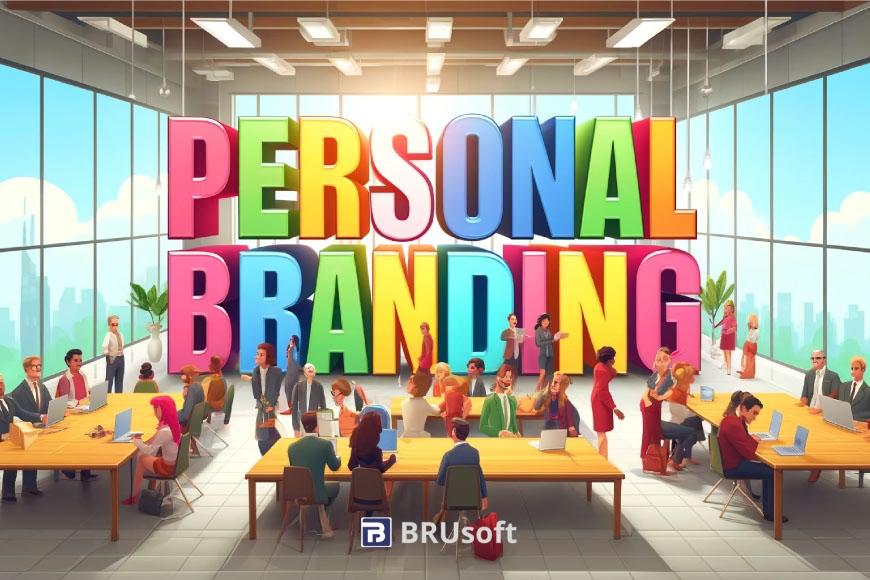In an age where your online presence can be as significant as your real-life presence, personal branding has become more than just a buzzword—it’s a vital part of professional success. Personal branding is the practice of marketing yourself and your career as a brand. It’s an ongoing process of developing and maintaining a reputation and impression of an individual, group, or organization. While personal branding might seem like a product of modern social media, it’s actually as old as careers themselves. What has changed is the platform and tools available to us to project our personal brand into the world. This blog will guide you through developing a powerful personal branding strategy that reflects your professional capabilities and authentic self.
Creating a compelling personal brand isn’t just about showing the best version of yourself; it’s also about establishing a unique presence in your field that attracts opportunities and networks. This endeavor requires understanding your unique value, identifying your audience, and consistently communicating through various channels. Whether you are an entrepreneur, a freelancer, or a professional, a well-crafted personal brand can be your greatest asset. It can set you apart from the competition and open doors to new possibilities. Here’s how you can build and enhance your personal branding to make a significant impact.
Crafting Your Image: The Essentials of Personal Branding
Building a personal brand begins with self-reflection and introspection. Start by defining who you are, what you stand for, and what you aim to achieve. This foundation will guide all your personal branding efforts, from your online presence to your interactions with others. It’s essential to be consistent and genuine; a personal brand that reflects your true self is more likely to resonate with people and create meaningful connections.
Visual Identity: Crafting Your Brand’s Look
Your visual identity is often the first aspect of your brand that people encounter, so it’s crucial to make it count. This includes everything from your logo and color scheme to your style of dress and business cards. Your visual brand elements should reflect your personality and professional ethos. For instance, a bright and bold color palette can express creativity and energy, while a more subdued palette might suggest sophistication and restraint. Additionally, consistent use of these visual elements across all platforms helps in reinforcing your brand and making you instantly recognizable.
Verbal Identity: Your Brand’s Voice
Your verbal identity is how you communicate your brand through words. This aspect covers your tone of voice, the language you use, and how you interact with others, whether in writing or speech. It should align with your professional identity and target audience. For example, a lawyer might use a more formal tone with precise language, while a creative director might opt for a more casual and imaginative style. Your verbal identity not only conveys information but also builds an emotional connection with your audience, making your messages more impactful.
Digital Footprint: Managing Your Online Presence
In the digital age, your online presence can be a powerful tool in personal branding. It involves carefully curating your social media profiles, professional websites, and any content you publish online. This digital footprint should consistently reflect your personal brand and help build your professional network. It’s not just about what you post, but also what you comment on and the types of accounts you interact with. Each digital action should contribute to a cohesive brand narrative that enhances your professional stature.
Personal Style: The Real-World Extension of Your Brand
Your personal style is more than just your appearance; it’s how you carry yourself, your mannerisms, and even your physical workspace. These elements should align with your brand and speak volumes about your professionalism and attention to detail. Whether it’s the design of your office or the attire you choose for professional settings, your personal style is a direct reflection of your brand and can influence how others perceive your professionalism and competence.
Beyond the Basics: Advanced Personal Branding Strategies
As you become more comfortable with basic personal branding, you can explore more sophisticated strategies to enhance your brand’s reach and influence.
Strategic Networking: Leveraging Relationships for Brand Growth
Networking isn’t just about collecting contacts; it’s about building relationships that can lead to mutual growth and opportunities. Strategic networking involves identifying key individuals within and outside your industry who can help you advance your personal brand. This approach isn’t opportunistic; it’s about forming genuine connections that provide value to all involved parties. Whether through professional associations, social media, or personal introductions, every interaction is a chance to further establish your brand.
Content Creation: Establishing Thought Leadership
One of the most effective ways to strengthen your personal brand is to produce content that showcases your expertise and insights. This could be through blogging, podcasting, or even creating video content. Content creation not only helps in positioning you as a thought leader but also enhances your visibility and influence. The key is to provide value through your content—information that is not only insightful but also actionable and relevant to your audience.
Continuous Learning and Adaptation
The realm of personal branding is ever-evolving, with new platforms and trends emerging regularly. Staying updated with these changes and continuously adapting your strategies is crucial. This might mean updating your skills, experimenting with new marketing techniques, or even rebranding yourself to align with your evolving career goals.
Conclusion
Personal branding is an empowering process that involves much more than just managing appearances. It’s about discovering your unique value, conveying it through multiple channels, and making sure it resonates with your intended audience. In today’s competitive landscape, personal branding is not just beneficial; it’s essential. By taking control of your personal brand, you not only enhance your career opportunities but also establish a professional legacy that can open doors to unforeseen opportunities. Remember, your brand is a reflection of your professional journey—make it a powerful one.





